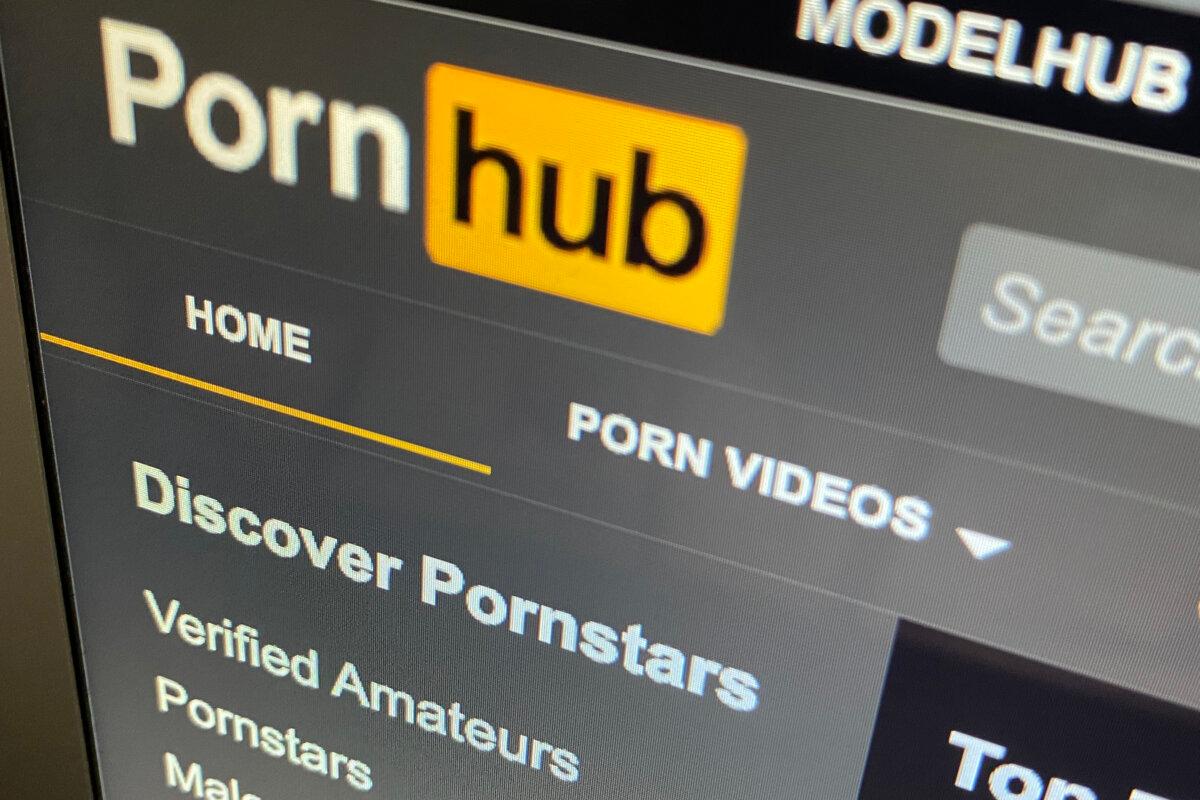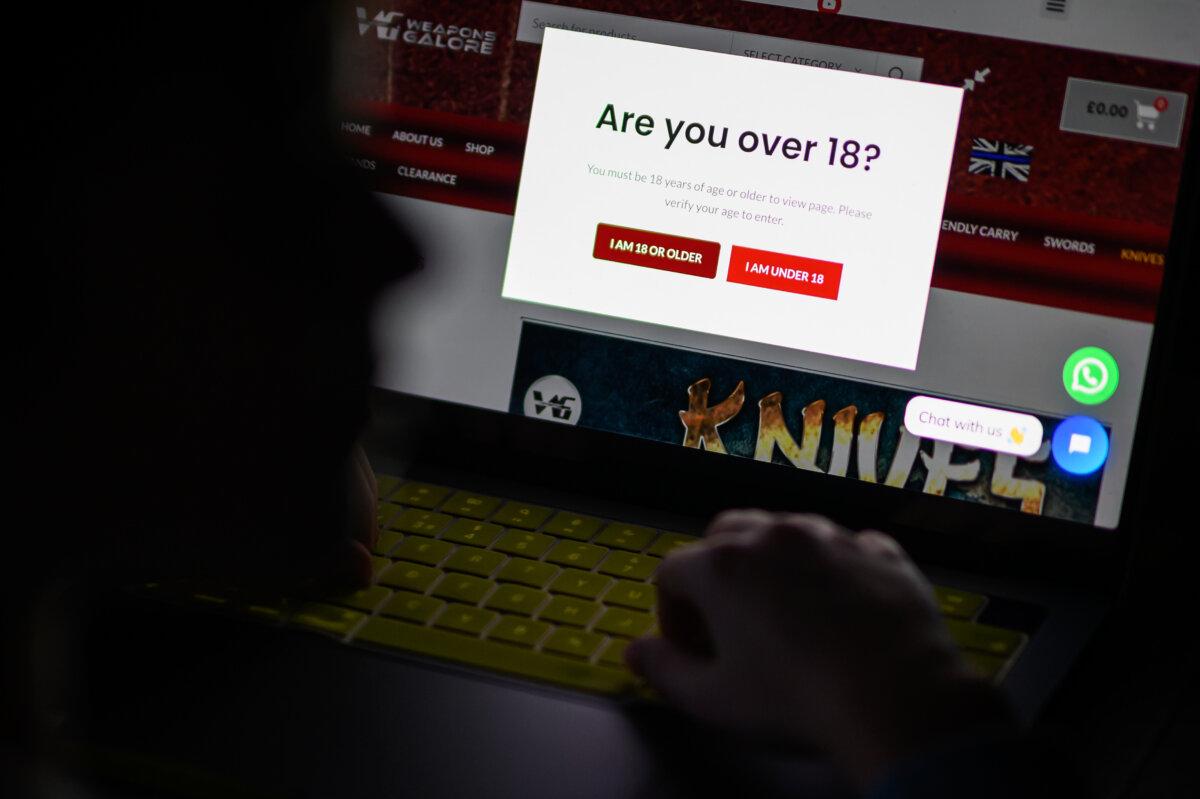Unrestricted access to pornography is causing profound and alarming changes in the cognitive development of boys hailing from the most economically deprived backgrounds, campaigners have warned.
Young boys from tough economic backgrounds having unfettered access to ever novel and increasingly violent and deviant material is a “slow-motion car crash” for society, said an education charity that promotes pornography harm awareness.
Mary Sharpe, CEO of The Reward Foundation, told The Epoch Times that this is “the biggest unregulated social experiment in the history of mankind.”
“Never before have people had unfettered access to ever novel and increasingly violent and deviant material that can reshape their sexual tastes and cause sexual dysfunction from over-stimulation,” she said.
‘The Eye of Sauron’
Campaigners, children’s groups, and online safety experts have all raised concerns about children’s access to porn.But those who work directly with some of the most deprived children in the UK have seen major changes to boys in real time because of such materials.
The organiser of a Christian outdoor learning activities centre, who has decades of experience teaching children from this group, told The Epoch Times that he has noticed a drastic change in the boys, who often also have autism, in the way they use explicit sexual language.
The Epoch Times has chosen not to name the person or the centre.
The Epoch Times found that the debate surrounding the societal impacts of pornography in the United States is notably more intense than in the UK.
Campaigners, journalists, and academics advocating for the acknowledgement of potential addiction or harm from pornography claim they frequently face attacks from associates of the industry.
“When you hear them talking, so not all kids but some kids, we are like ‘what, we have never heard of stuff like that,’” the organiser said, adding that the boys are watching “really graphic extreme stuff.”
Smartphones are banned from site. “They are like the Eye of Sauron,” he said, but he added that taking their devices is “a big issue.”
“It’s their lives, their whole identity is their phones,” he said.
But he said that when the boys go home, they will still have access to porn.
“The only person that can do anything is the parent,” he said.
But now the bar is so high, the problem so profoundly widespread, that it is difficult for social services or schools to do anything, he said.
“And even if a parent can go upstairs to confront their kid, boys can often trash the house if they don’t get their Wi-Fi,” he added.

‘Porn Just Adds Fat to the Fire’
Ms. Sharpe told The Epoch Times that the “impact of ‘porn addiction,’ or compulsive use, is totally underestimated in general and certainly amongst socially deprived children in particular.”She said that they have often suffered added stress in their childhood owing to poverty, abuse, or poor parental attachment. These are part of the adverse childhood experiences list, or ACEs.
“Those factors make them more prone to developing addictions during adolescence. Porn just adds fat to the fire. Early exposure to porn is considered an additional ACE. It’s a slow-motion car crash for society,” she said.
She said that parents are justifiably worried that their kids will “kick off” if their phone is removed, because when “someone is hooked, it feels to them like a matter of life or death, to get their next hit.”
“Such is the power of cravings and the discomfort of withdrawal. But parents have to educate themselves about how porn affects the teen brain and be brave enough to face the arguments and guide their kids through this difficult stage of development. If they don’t do it, who will?
“The porn industry is only too willing profit from the young person’s attention to their sites as they will gather and sell their personal data and groom them as future paying customers,” she added.
“The challenge, too, is that young people from economically deprived backgrounds are being lured by porn-friendly social media sites to believe they can make lots of money selling sexual acts online via platforms like OnlyFans or TikTok,” she said.
“They might think it’s safe because they don’t have to meet the clients in real life, but what we hear from those who have exited from what is basically virtual prostitution, is the psychological damage it does to them over time if they are recognised, in addition to the physical injuries,” she added.
“The challenge with this social group is that their expectations of the future are low anyway. Heavy porn use, often till late at night, deprives them of much needed sleep that would help them pay attention and learn at school. Easy access to extremely stimulating sexual material that is basically free, seems like an obvious solution to the normal challenges of adolescence,” said Ms. Sharpe.
She said that research into porn addiction has found that it causes social anxiety, depression, sexual arousal difficulties, and contributes to “attitudes and behaviours that objectify women as body parts to be consumed and then ignored.”
“This in turn is causing huge mental health issues for young women who are not getting into relationships where they feel cherished and loved, but rather expected to be available for male pleasure for little or nothing in return. It destroys what is already very fragile self confidence.
Dopamine
Last year, research from the Children’s Commissioner for England found pornography exposure is related to the age at which children are given their phones.It also said that children—boys were more likely than girls to search for pornography regularly—who had first viewed online pornography at age 11 or younger were significantly more likely to access pornography frequently.
Porn sites get more visitors each month than Netflix, Amazon, and Twitter combined and about one-third of all web downloads in the United States are porn-related.
Pornography addiction is not categorised as an addictive behaviour in the reference book the “Diagnostic and Statistical Manual of Mental Disorders,” often known as the “DSM-5.” This means there is no officially recognised diagnostic criteria for porn addiction.
Despite this, different British rehabilitation centres say that pornography addiction is becoming increasingly common among young people in the UK.
UK Rehab said that medical experts are now warning that “regularly watching porn could have an adverse effect on the brain by essentially rewiring it.”
“The act of having sex or watching pornography results in the brain releasing the chemical dopamine, which is responsible for pleasure and reward. However, continually causing dopamine to be released into the body can mean that the brain becomes tolerant to the effects,” it wrote.

‘Everybody Agrees Here That Kids Shouldn’t Be Seeing This Stuff’
The Safescreens campaign, which is run by children’s rights group UsForThem, is calling on the government to introduce a framework for selling and marketing smartphones to children in order to safeguard their well-being.Arabella Skinner, director of Safescreens, told The Epoch Times by email the “lack of any meaningful regulation around smartphones means that children are exposed to the most extreme content including violence and extreme porn.”
“This clearly impacts their social development, but also for those who become addicted it has implications for their school attendance. As a society, we have to get to grips with the damage that unrestricted smartphone use is having on our children, and call on politicians to commit to real measures to address this,” she said.
John Carr, one of the world’s leading authorities on children’s and young people’s use of digital technologies, told The Epoch Times that he believes that the Online Safety Act will prevent children from accessing porn as previous laws dealt with gambling companies’ lack of action to prevent underage gaming, despite claiming to take the issue seriously.
Under internet regulation, sites and apps that display or publish pornographic content must now ensure that children are not normally able to encounter pornography on their service.
The communications regulator Ofcom, which is in charge of policing the Online Safety Act and has powers to take enforcement action, said that if “you or your business has an online service that hosts pornographic content, you will need to estimate or verify your users’ ages so that children cannot view it.”
Mr. Carr said social media companies have age restrictions to access their platforms, but there are children much younger than 13 on there, though many of the sites still provide access to pornography.
“The whole thing is a complete mess,” he said.
“Britain is the first country in the world [that is a] liberal democracy to try to address the problem. And we'll see how well it works. We’re not there yet,” he added.
He said that it’s very difficult to find anybody in the UK making an argument that porn companies shouldn’t restrict access to children.
“Everybody agrees here that kids shouldn’t be seeing this stuff,” he added.







